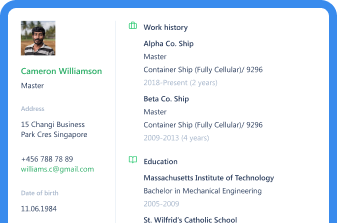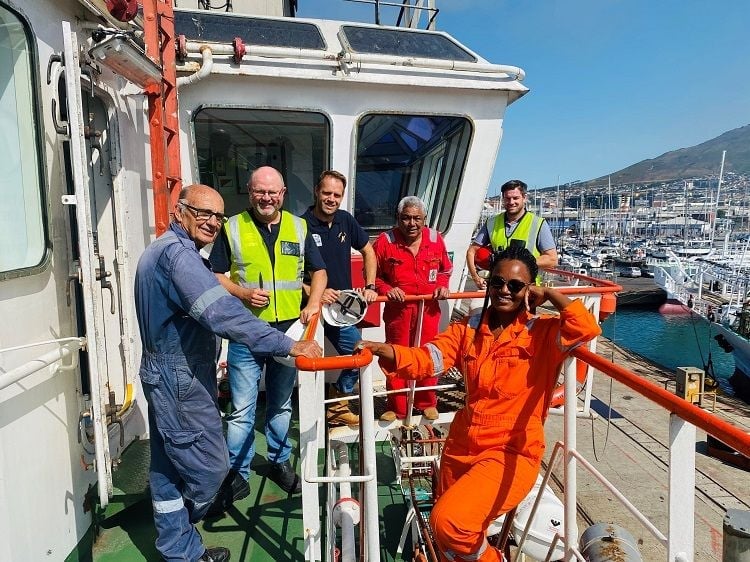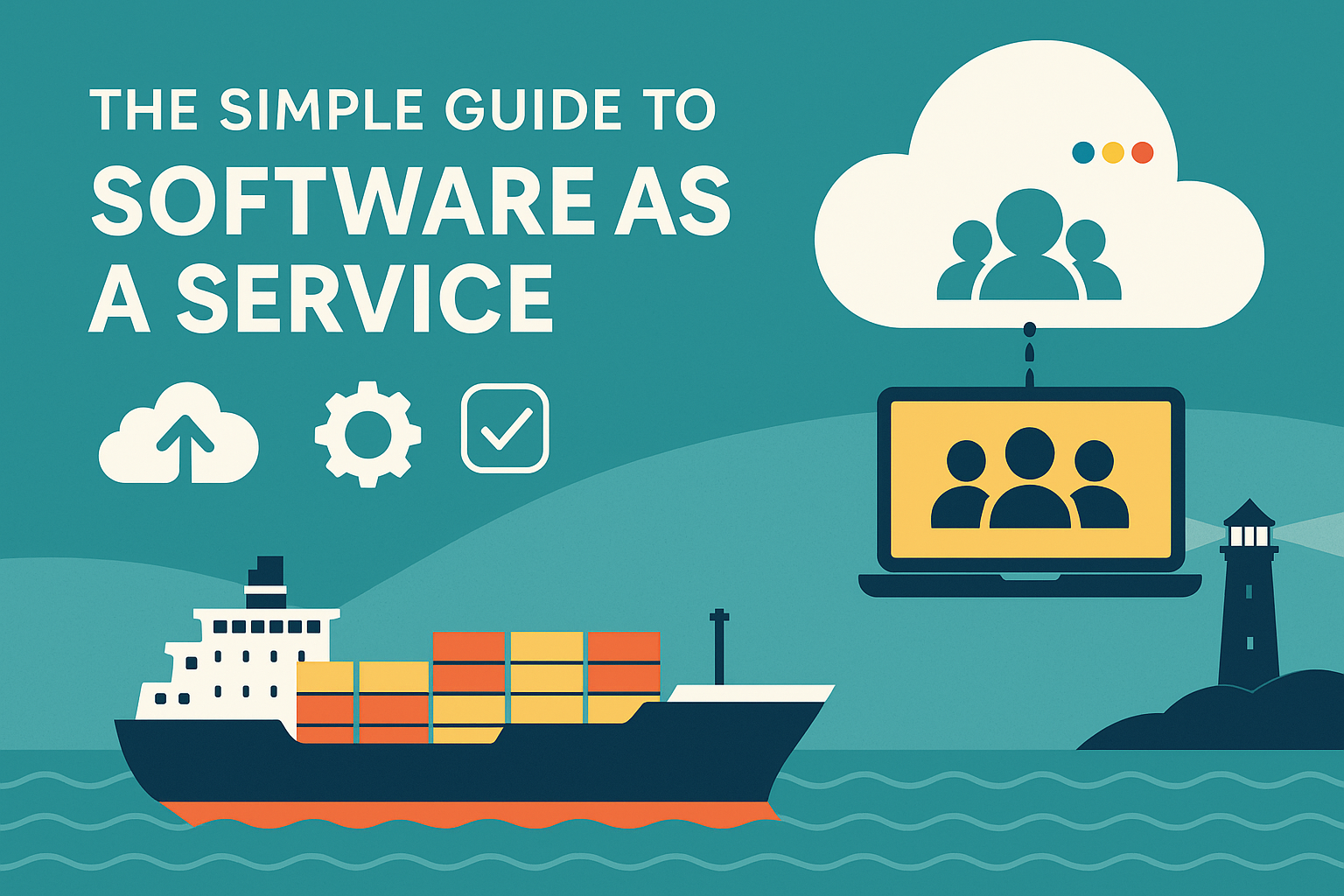Interviewing candidates is an essential part of the maritime recruitment process, indeed, of any recruitment process. But as a recruitment officer in a small to medium sized shipping company you’ve probably lost count of the number of seafarers you’ve interviewed over the years.
Unlike more traditional interviews for regular employees, when contracts are a matter of months, you see a never ending cast of different seamen.
And that can make it easier to fall into the trap of just ‘going through the motions’ when you’re interviewing. You ask the candidate about their sea time, experience, and qualifications - and they tell you.
And based on the answers they give you and the certificates they show you, you then make a decision whether to add them to a vessel or not.
The issue is: how do you really know whether they’re going to be a suitable crew member or not?
On paper they might come across as the world’s best Bosun or a top notch Chief Cook but what are their interpersonal skills like? The Chief Engineer you’ve just hired might know his or her stuff - but they might be unbearable to work with.
That’s why, if you don’t have previous knowledge of an applicant to one of your seafarer jobs, candidate evaluation is crucial in maritime recruitment.
Yes you need to hire someone who is qualified and who has experience, but you also want to make sure you’re picking the right seafarer for the job by learning more about their background and their personality.
And, no matter whether you’re conducting your interview in person, over the phone, or over Skype or Zoom, in the majority of cases an interviewee will be on their best behavior while you’re talking to them. That can make it especially difficult to figure them out as a person, particularly on phone or video calls.

Add to that the fact that the seafarer you’re interviewing may not be speaking in their native language and that can also complicate matters.
How to evaluate your candidates in maritime recruitment
To be able to accurately assess a candidate you need to ask questions that will elicit answers that will give you a glimpse into their true nature.
Did they do any pre-interview research?
For example, ask them what they know about your company.
You know they have their COC and STCW certificates in order, but how prepared are they for the interview itself? Yes, hiring someone on a six month contract at sea is very different to hiring someone who you hope to have working for you for a number of years in an executive role, but a little homework never hurt anybody.
And if they know something about your company, it shows they are a seafarer who believes in doing their research, being prepared and willing to go the extra mile.
How do they react to disagreements?
Life on board can be tough. There’s no mistaking that. A crew made up of different backgrounds, nationalities and personalities can lead to disagreements or even conflict.
You need to know, to the best of your abilities, that you’re not hiring someone who loves to fan the flames when it comes to arguments or issues.

Ask them how they would deal with conflict onboard the vessel. In an ideal world you want a response that goes along the lines of “I would stay calm and do my best to understand the other person’s point of view.” And “I would have the vessel, the crew, and the company’s best interests and safety in mind at all times.” And “I would view the situation logically and not take things personally.”
How do they act when they’re not in the interview?
Obviously this only applies to in-person interviews, but it is a good indicator of a candidate’s true colors. As we said, they will normally be on their best behavior while they’re speaking to you, but how did they speak to the person on reception or whoever greeted them when they arrived at your office?
Also, did they arrive on time and were they dressed in an appropriate manner for an interview? Or did they rock up 15 minutes late, be dismissive of the receptionist and were clad in dirty sweatpants and carrying a bag of shopping?
An extreme example maybe but how a candidate behaves either side of the interview can speak volumes about their real self.
And do you want someone who isn’t punctual or civil, or who doesn't have high standards onboard one of your vessels? Probably not.
What is their body language saying?
We’ve covered this in more detail in this blog post here but as a rule of thumb you want to keep an eye out for character traits such as extreme over eagerness or over friendliness.
Initially this could be a sign of nerves but as the interview progresses, most candidates will settle down. If not you might be dealing with someone who has something to hide - so check those references and certificates carefully before making a decision!

Likewise, you want to double check a candidate’s background for any issues with drugs or alcohol if they’re coming across as distracted, fidgety, slightly aggressive or spaced out.
Bear in mind an interview is an unnatural situation - especially for the interviewee who may not have much experience in job interviews, or who is probably much more at home in an engine room, on deck or on the bridge than in an office.
What does their online alter ego say about them?
Recruiters across all industries are increasingly seeking out candidates’ online personas to learn more about them before an initial interview. And this is something that can also be beneficial in a maritime recruitment scenario.
What do their social media profiles say about their values and personality?
Do they leave inflammatory comments on other users’ posts? Do they post offensive material and memes? Do they exhibit an intolerance towards other races or religions?
You might want to think twice about hiring them and sending them off on a six month contract at sea if so!

LinkedIn profiles normally err towards the more professional so you might learn more from their Facebook, Instagram or Twitter accounts, if they have them. Obviously you need to exercise judgment over what you count as research into a candidate - after all, they’re entitled to some fun and games when they’re not onboard.
A particularly good sign would be if, alongside photos and posts of their family, friends and other interests, they also exhibit an interest in their career.
Do they post about the merchant navy? About ships? About skills and training? About life at sea? If so, it’s probably fair to say they have some level of passion for the job they do and their life as a seafarer.
Read more: 5 Risks of Using Social Media to Screen Your Candidates
How to make candidate evaluation easier in maritime recruitment
The maritime recruitment process can be a stressful one thanks to all of its different moving parts and if you find evaluating candidates for your jobs at sea a little bit on the tricky side, the good news is that there is an easier way.
While you want your interview questions to focus on your candidate’s seafaring skills, qualifications and experience, you also need to find a new hire who is a team player and who won’t rock the boat. Pun intended.
That’s why Martide’s maritime recruitment and crew management software solution makes candidate evaluation a piece of cake. With a visual interface that makes it easy to see at which stage in the recruitment pipeline a candidate is, you’ll also be able to evaluate each candidate based on their performance in the interview.
Better still, this evaluation is based on your own criteria which you specify within Martide’s platform.

You’ll also be able to perform a sea service check by accessing references from a candidate’s past employers as well as seeing their experience on ships they’ve previously worked on.
Then, once you’ve fully evaluated your candidate, are happy with them, have sent them an offer and had it accepted (also using Martide’s software) you can then upload your contract and send it to your candidate.
It’s candidate evaluation and maritime recruitment made easy and we’d love to tell you more about how we can help your small to medium sized shipping company streamline your operations.
Get in touch with us today and let’s talk.

Eve Church
Eve is Martide's content writer, publishing regular posts on everything from our maritime recruitment and crew planning software to life at sea. Eve has been writing professionally for more than two decades, crafting everything from SEO-focused blog posts and website landing pages to magazine articles and corporate whitepapers.
UK



